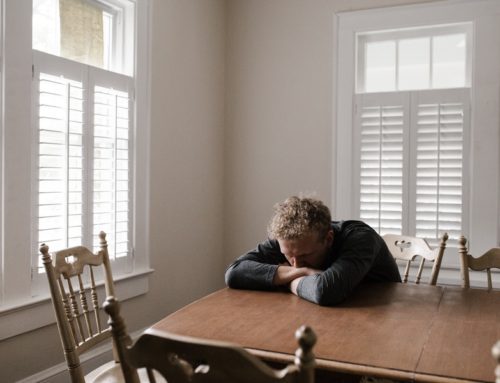Insomnia is a common problem in America, affecting those with and without psychological disorders. About 60 million people in the USA experience insomnia every year, leading to losses of 92 billion dollars yearly in reduced productivity.[1] It causes physiological and psychological stress that aggravates other conditions and in general causes a great deal of misery. However, we can take some actions to address insomnia, especially when it comes to how we approach sleep.
Sleep hygiene refers to the steps we take to prepare ourselves for a good night’s rest. Good sleep hygiene includes all the behaviors we perform that allow us to get to sleep and stay asleep. Like general hygiene, sleep hygiene can involve things we do during the day and night. Good sleep hygiene involves planning for restful sleep and making it a priority.
Steps to Improve Sleep Hygiene
We often use our bedrooms as a dual-purpose environment, watching tv or streaming shows as we’re winding down our day. However, studies have shown that associating the place where we sleep with activities other than sleeping can prompt insomnia.[2]
- Make your bedroom into a quiet, relaxing refuge.
- Use your bed for sleep and sex only.
- Establish a consistent sleep schedule. There’ll be times when your sleep schedule has to change up, but for the most part, go to bed at the same time and get up at the same time.
- Set your bedtime to give you at least 7 hours of sleep each night. That said, don’t go to bed if you’re wide awake.
- If you haven’t fallen asleep within 30 minutes, get out of bed.
- Make your bedroom quiet and relaxing. Most people find a slightly cool bedroom conducive to sleep. If there are noises you can’t eliminate, such as street noise, consider using a white noise machine.
- Reduce exposure to blue light from hand-held devices in the evenings. Stop using blue-light emitting devices 30 minutes or more before going to bed.
- Turn off electronic devices at least 30 minutes before bedtime.
- Don’t consume caffeine or alcohol within 4 hours of bedtime.
- Don’t eat anything heavier than a light snack within 4 hours of bedtime.
- Avoid napping during the daytime.
- Get at least 30 minutes of exercise daily, but don’t do more than light exercise within 2 hours of bedtime.
- Reduce light exposure in your bedroom. Avoid exposure to street lights or other sources of excess light. You might consider using blackout curtains to keep the room insulated from light, or using a sleep mask.
Damaris Aragon, ARNP, BC provides a full spectrum of mental health care to people in Spokane, Washington, and surrounding areas. She focuses on providing personalized, compassionate care that adheres to current evidence-based standards. Reach out to Damaris through her contact page or calling 509-342-6592.
[1] https://psycnet.apa.org/record/1999-00939-003
[2] https://www.sleepfoundation.org/insomnia/what-causes-insomnia






